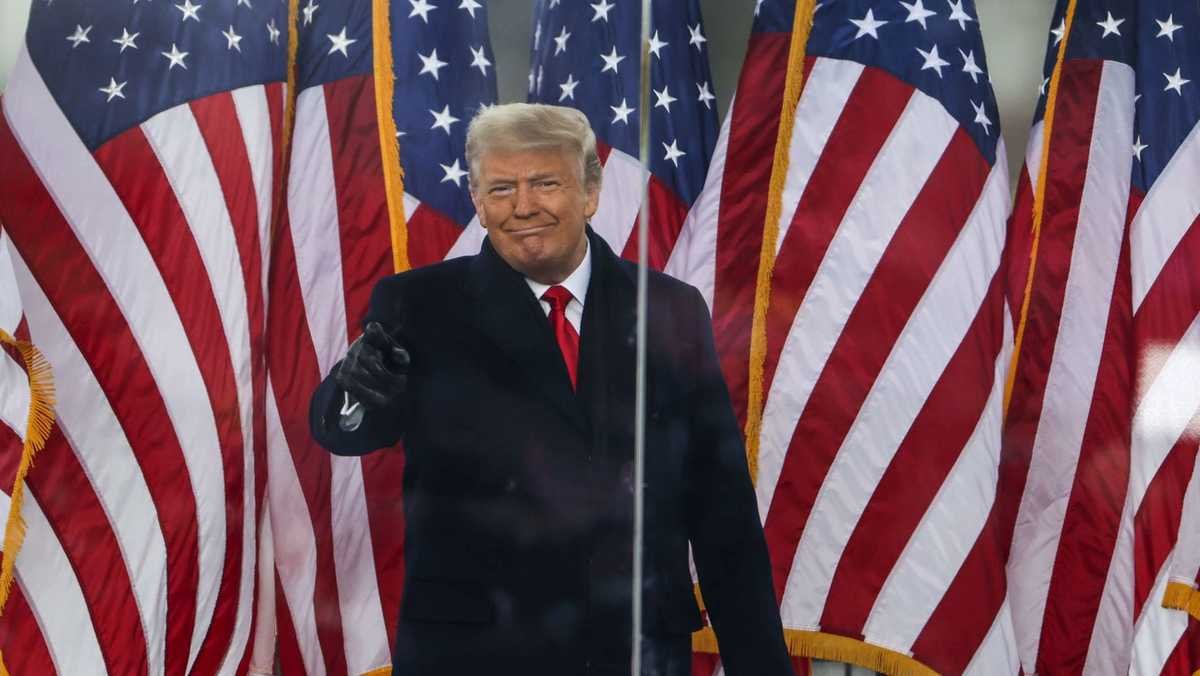
Former President Donald Trump has appealed an Illinois judge’s decision that disqualified him from the state’s upcoming Republican primary ballot.The ruling from Cook County Circuit Judge Tracie Porter, an elected Democrat, concluded that Trump is barred from office under the 14th Amendment because he engaged in the Jan. 6, 2021, insurrection.The case landed in court after the Illinois State Board of Elections dismissed the challenge due to lack of jurisdiction. A retired Republican judge who was hired by the panel to hear evidence in the case concluded that Trump engaged in insurrection – but that only courts, and not the board, had the power to remove him from the ballot.The GOP primary in delegate-rich Illinois is on March 19. Ballots have been printed and early voting is already underway. The surprise court ruling this week throws into question whether votes cast for Trump will be counted.Porter issued her decision Wednesday night and paused the decision for two days, so Trump could appeal. Notably, she did not pause the ruling beyond that window. Trump’s lawyers asked her on Thursday to extend the pause until all of their potential appeals are exhausted in Illinois courts.”Staying the judgment until the Illinois appellate courts finally decide this case would reduce the great risk of voter confusion and logistical difficulties for election officials,” Trump’s lawyers wrote in the filing.It’s also possible that an Illinois appeals court will step in to extend the pause. Trump’s lawyers said they’ll ask for that if Porter won’t do it.Hanging over the Illinois dispute is the U.S. Supreme Court, which heard arguments earlier this month on a related “insurrectionist ban” case from Colorado, where Trump was stripped from the ballot. The justices seemed likely to reverse that decision, teeing up a conflict with the Illinois ruling.The 14th Amendment, which was ratified after the Civil War, says U.S. officials who take an oath to uphold the Constitution are disqualified from holding future office if they “engaged in insurrection” or have “given aid or comfort” to insurrectionists.However, the Constitution does not spell out how to enforce the ban, and the vague phrasing has led to questions about whether it even applies to the presidency.Illinois, Colorado and Maine are the only states so far to disqualify Trump.
Former President Donald Trump has appealed an Illinois judge’s decision that disqualified him from the state’s upcoming Republican primary ballot.
The ruling from Cook County Circuit Judge Tracie Porter, an elected Democrat, concluded that Trump is barred from office under the 14th Amendment because he engaged in the Jan. 6, 2021, insurrection.
The case landed in court after the Illinois State Board of Elections dismissed the challenge due to lack of jurisdiction. A retired Republican judge who was hired by the panel to hear evidence in the case concluded that Trump engaged in insurrection – but that only courts, and not the board, had the power to remove him from the ballot.
The GOP primary in delegate-rich Illinois is on March 19. Ballots have been printed and early voting is already underway. The surprise court ruling this week throws into question whether votes cast for Trump will be counted.
Porter issued her decision Wednesday night and paused the decision for two days, so Trump could appeal. Notably, she did not pause the ruling beyond that window. Trump’s lawyers asked her on Thursday to extend the pause until all of their potential appeals are exhausted in Illinois courts.
“Staying the judgment until the Illinois appellate courts finally decide this case would reduce the great risk of voter confusion and logistical difficulties for election officials,” Trump’s lawyers wrote in the filing.
It’s also possible that an Illinois appeals court will step in to extend the pause. Trump’s lawyers said they’ll ask for that if Porter won’t do it.
Hanging over the Illinois dispute is the U.S. Supreme Court, which heard arguments earlier this month on a related “insurrectionist ban” case from Colorado, where Trump was stripped from the ballot. The justices seemed likely to reverse that decision, teeing up a conflict with the Illinois ruling.
The 14th Amendment, which was ratified after the Civil War, says U.S. officials who take an oath to uphold the Constitution are disqualified from holding future office if they “engaged in insurrection” or have “given aid or comfort” to insurrectionists.
However, the Constitution does not spell out how to enforce the ban, and the vague phrasing has led to questions about whether it even applies to the presidency.
Illinois, Colorado and Maine are the only states so far to disqualify Trump.





